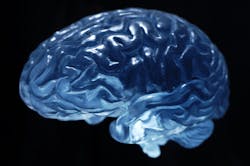Researchers at the National Institutes of Health have discovered a new neurological condition characterized by issues with motor coordination and speech. They report their findings in npj Genomic Medicine.
Scientists from NIH’s National Human Genome Research Institute (NHGRI) and Undiagnosed Diseases Program (UDP) identified three children with the condition, two siblings and an unrelated child. The three children all had issues with motor coordination and speech, and one child had abnormalities in the cerebellum, the part of the brain involved in complex movement among other functions. Additionally, the children all had mutations in both copies of the ATG4D gene.
Computational analyses predicted that the three children’s ATG4D mutations would produce dysfunctional proteins. However, three other genes in the human genome serve very similar roles to ATG4D, and in some cells, these other genes may compensate for a loss of ATG4D.
While all cells in the body share the same genome, some genes are more important for certain cells. When the researchers studied the children’s ATG4D mutations in skin cells, the variants did not affect the cells’ recycling process, but this may not be true in the brain.
To simulate cells that rely more heavily on ATG4D, the researchers deleted the similar genes in cells grown in the laboratory and then inserted the children’s ATG4D mutations. The researchers determined the cells with the children’s ATG4D mutations could not carry out the necessary steps for autophagy, indicating that the children’s symptoms are likely caused by insufficient cellular recycling.

